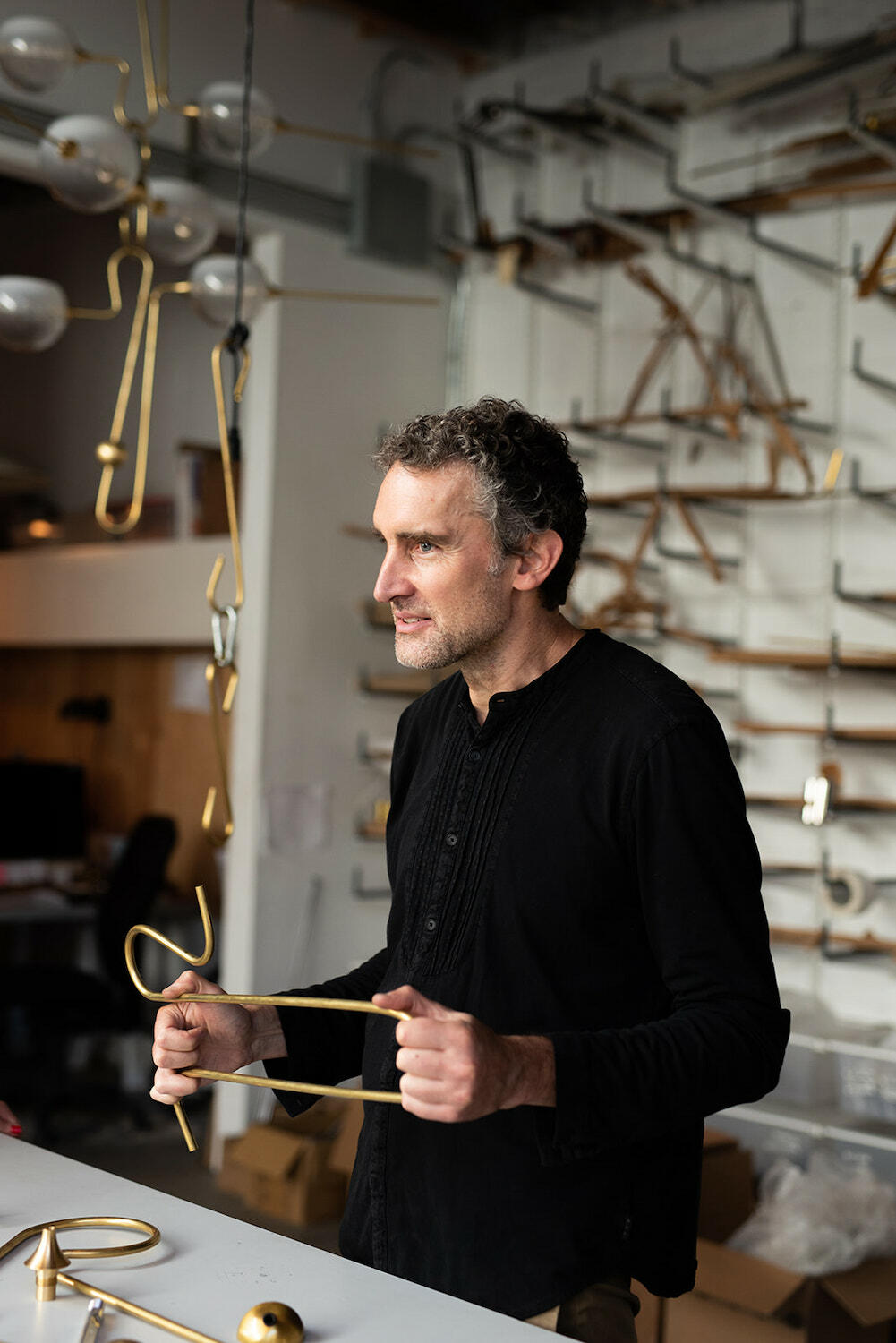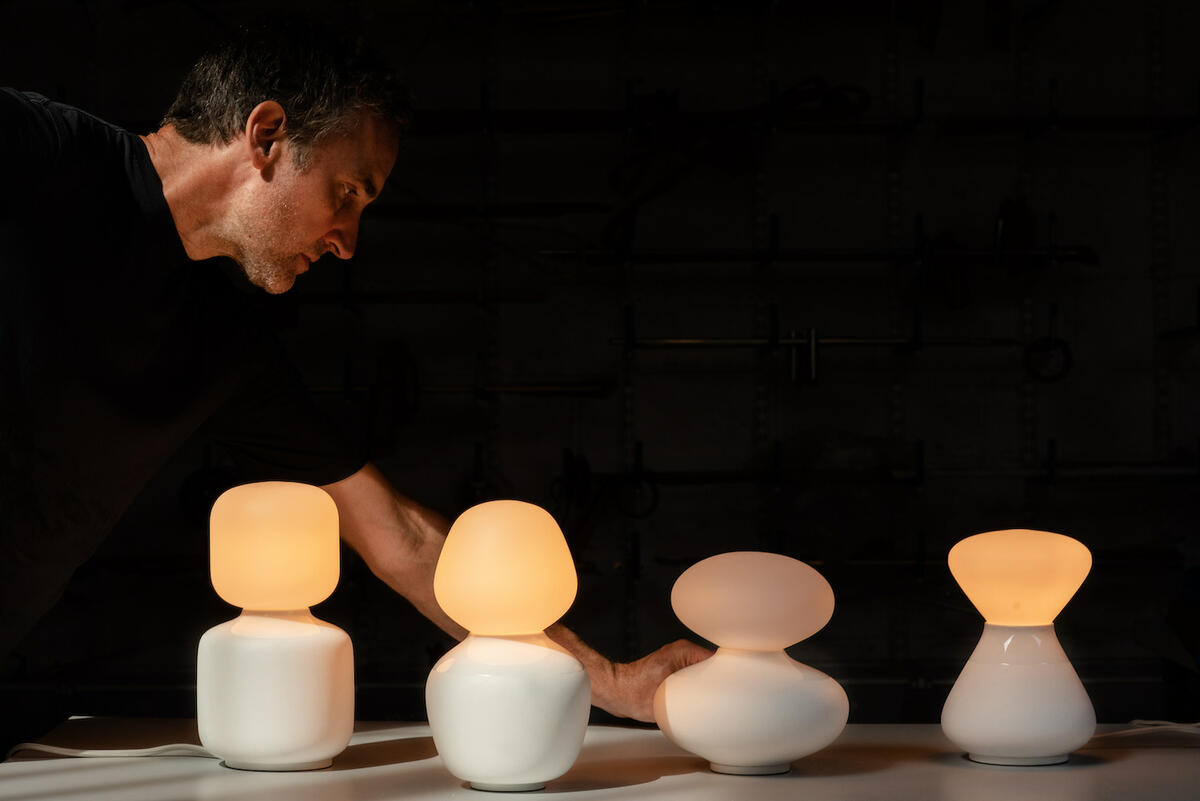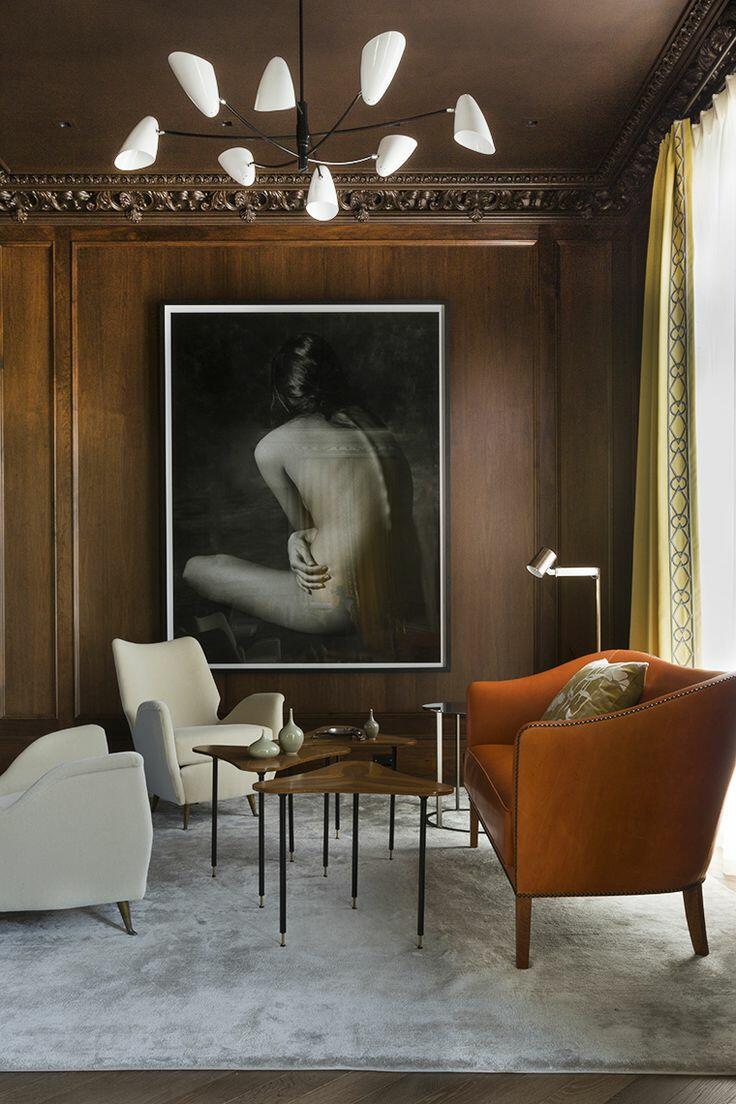
David Weeks is a problem solver. The Brooklyn-based maker’s pieces often begin with an obstacle or question—“How do we make this do a certain thing?” or “How can we make that work?”—that evolves into a design-based solution. “It’s the curiosity and experimentation within this approach that fuels me,” he tells Business of Home.
Growing up in Athens, Georgia, Weeks cultivated an early interest in art, pottery and printmaking. In college, he studied painting at the Rhode Island School of Design before landing a job working with—and eventually apprenticing for—jewelry designer Ted Muehling at his New York studio. “It was here that I began noticing my interests shifting from fine art to design,” he says. “I became focused on the idea of infusing functional objects with sculptural style.”
Inspired, he opened his own metal fabrication shop in Brooklyn in 1996, and crafted custom furnishings, including desk lamps, that he would hand-deliver to clients in his Volkswagen Beetle. “We were a small team of three people, but the company began to grow substantially,” says Weeks. “This naturally started to fund other avenues of my imagination, and we launched the Semana chair with Habitat UK, as well as an upholstery line with Ralph Pucci and a collection of wooden toys for Areaware.”

Weeks describes his design process as “evolutionary,” often starting with a rough sketch or a miniature model forged from paper, metal and wood. Employing a sculptural technique he calls “formal reduction,” he slowly removes materials and shapes until the object arrives at its most simple yet functional form. “It’s much more about the discovery and the unknown and just seeing what happens,” he explains. “Designs seem to work best when there isn’t an exact goal.”

One of his early creations, for instance, a chandelier called the Aluminum Bullet, features a mobile frame composed of slender, interlocking arms that create a sense of rhythm and movement without the risk of entanglement or visual clutter. “I decided to embrace the mechanics rather than hide them,” says the designer says of the industrial-style fixture. “Twenty-five years later, we just released the final edition of the design.”
More recently, Weeks was awarded the American Academy in Rome’s esteemed Rolland Rome Prize for his project Movable Beasts, resulting in a four-month fellowship in Italy, where he’s currently developing a collection of toys and lighting that reference everything from the Galileo museum in Florence to the disassembled pieces of the famed Colossus of Constantine. “I found myself weaving Rome’s history and inventiveness into the project,” he says.
Looking ahead, Weeks hopes to launch a new mobile light fixture named Scopo (Italian for “scope”) at Milan Design Week next month, before returning to New York and reacclimating to stateside life. “From the beginning, we’ve always been an intimate studio striving to incorporate an instinctual point of view into the production-oriented, prototype-to-market technique of a product designer,” he says. “Our hands-on approach will always be at the heart of the work—as is our pursuit to cross the aesthetic barriers between genres and generations.”
If you want to learn more about David Weeks, visit his website or Instagram.




























